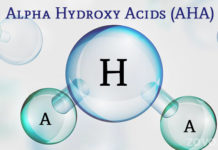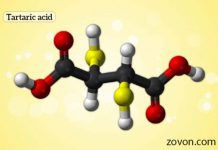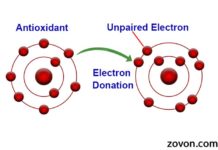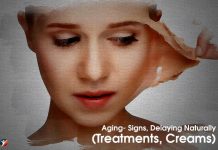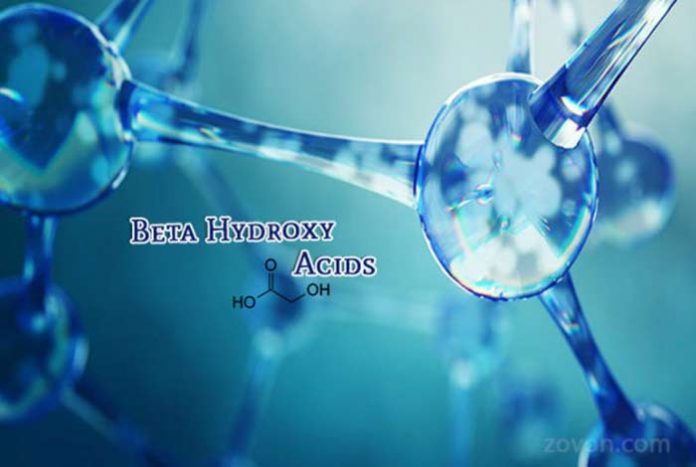
Beta Hydroxy Acids or BHAs are fat-soluble organic compounds that are acidic in nature. The usual structure of a beta hydroxy acid includes a carboxylic acid and hydroxy functional groups. These compounds are called so as their functional groups are separated by two carbon atoms.
While Beta Hydroxy Acid is extensively used in in skin care products, it is not the only hydroxy acid compound that finds application in the skin care industry. Another hydroxy acid, known as Alpha Hydroxy Acid (AHA) too is also an active ingredient of many skin care products.
BHAs can be classified as tropic acid, trethocanic acid, beta hydroxybutanoic acid and most commonly, salicylic acid. While both AHAs and BHAs are great exfoliants, BHAs are known to be much more effective in reducing signs of aging like wrinkles and fine lines.
The U.S. Food and Drug Administration (FDA) recommends conducting a skin patch test before using any of the products containing BHAs. The federal agency has also advised to use a sunscreen with high sun protection factor (SPF) while using BHA-rich products. Also, it is not safe to use these products over the skin of children and infants.
Natural Occurrence: Where to Find?
Beta Hydroxy Acids are organic compounds that are isolated from natural sources. As already mentioned, beta hydroxy acids are of several types and so, they all can be extracted from different sources.
One of the most utilized Beta Hydroxy Acid is Salicylic Acid which is used for various purposes. It is widely used in skin care industry too. Salicylic acid is extracted from the bark of the Willow Tree or Sweet Birch or other Salix species.
Beta Hydroxy Acids (BHAs) Vs. Alpha Hydroxy Acids (AHAs)
Basically, they both are carbon compounds that have a carboxylic acid and a hydroxy functional group. However, in case of Alpha Hydroxy Acids, the functional groups are separated by one carbon atom while in Beta Hydroxy Acids, the functional groups are separated by two carbon atoms.
Apart from the difference in their structure, they have a few differences in terms of physical properties. AHAs are water soluble, whereas BHAs are fat soluble. AHAs being water soluble help nourish the skin only above epidermis. On the other hand, BHAs being fat soluble can reach to the deeper layers of the skin , below the epidermis, and can provide much more nourishment to the skin. They can also penetrate the oil barrier of the skin.
Beta Hydroxy Acids Uses in Skin Care Products
Beta Hydroxy Acids are widely used in the skin care industry because of their skin-related benefits. Beta Hydroxy Acids are fat soluble in nature and thus, can nourish, moisturize and renovate the skin deeply. Although there occur many beta hydroxy compounds present in nature, such as salicylic acid, beta hydroxybutanoic acid, tropic acid, trethocanic acid and carnitine, not all of these are used in the skin care industry.
The major beta hydroxy acids used in the skin care industry are mainly salicylic acid and sometimes, citric acid. Salicylic acid is used in the formation of anti-aging and anti-marks creams, while citric acid is used as an antioxidant in skin care products.
BHA as an Exfoliant
Beta hydroxy acids are fat soluble in nature and are very useful for the people with oily skin. BHAs can go through the sebaceous gland of the skin and repair the skin below the epidermis (the top layer of the skin). They help nourish the skin cells and rejuvenate them to make it brighter and shinier.
Acne is major skin condition experienced by millions globally. It mostly occurs during the adolescence age or because of blood impurities. However, BHAs being fat soluble in nature work as an effective exfoliant and penetrate deep in the skin thereby relieving acne and skin breakouts BHAs help in the treating wrinkles too. However, the body does the skin renewal itself but as one gets older the skin renewal process slows down and eventually stops. However, BHAs reach below the epidermis and supports skin renewal, keeping you young for a longer time.
BHAs are not just used for skin renewal and anti-aging treatments but are widely used in the treating various skin diseases like:
- Psoriasis (scaly and dry skin patches)
- Warts (small fleshy bumps on skin)
- Dandruff (shedding of dead skin cells from the scalp)
- Seborrheic Dermatitis (red marks and scaly patches on scalp)
Side Effects and Precautions
If used unwisely or more than the recommended quantity, BHAs might cause various side effects. Some of these are discussed below:
- Beta hydroxy acids are generally acidic and fat soluble in nature. BHAs can penetrate deeper into your skin and nourish it. They work great on oily skin. However, for dry skin, they aren’t that great. Frequent use of BHA- containing cosmetics can make the dry skin even drier and rough. If you have dry skin, you should prefer using cosmetics having Has, and not BHAs.
- BHAs can make skin very sensitive. Using cosmetics that contain BHAs on a regular basis can make our skin cells highly photosensitive, resulting in frequent tanning and sunburns. Use of these products require a consistent SPF treatment for our skin to keep it healthy.
- Before using a skin product, always consult your dermatologist. All skin-care products aren’t meant for every skin type. Similarly, skin cosmetics containing BHAs aren’t compatible with all skin types and can cause itching and rashes if not used in moderation or as directed by a dermatologist.
- Products containing BHAs can cause problems to our eyes if used near them. Because of their acidic nature, they affect the eyes and may cause problems like irritation, redness and watery eyes.
As we are now quite familiar with BHAs, their uses side effects and precautions, let us learn about several commercially available cosmetics that contain BHAs.
Products
Commercial products containing BHAs contain around 1-2% of BHAs and have pH between 3 and 4. Neutrogena and Dermalogica are some of the top skin care brands, whose products contain beta hydroxy acids.
Neutrogena makes deep cleansing and blackhead removal scrubs that have BHAs. Similarly, Dermalogica makes BHA-containing exfoliants for skin that can be used for deeper nourishment and rejuvenation of skin cells.
Pure solutions of salicylic acid are also available in the market and can be used only after a dermatologist’s recommendation.
You can buy these products online or from a nearby cosmetic/drug store. Nevertheless, before using any of such products, you must consult your dermatologist to prevent yourself from possible side effects of the same.
FAQs: General Concerns About Beta Hydroxy Acids
Q. Why are BHAs better than AHAs?
A. Well, the truth is BHAs aren’t better than AHAs and vice versa. They both are completely incomparable. BHAs are fat soluble, whereas AHAs are water soluble, so they both are completely different in nature. While BHAs are recommended for oily skin, AHAs work magic on dry skin type. In a nutshell, which is better totally depends on the skin type of the user.
Q. I use an exfoliant peel for my skin, it contains BHA. But lately, my skin is getting tanned even if I spend only a few minutes in the sunlight. I use SPF 30 sunscreen too. What should I do?
A. The bitter truth about BHA is that it makes the skin sensitive to sunlight. But, if you are having problems even after using SPF30 sunscreen, you should immediately stop using both the products, and contact your dermatologist to get a better recommendation for the BHA-based product as well as the sunscreen. SPF50 sunscreen might work for you but you must surely seek your dermatologist’s advice first.
Q. Lately, I’m having burning sensations in my eyes. I started observing it after I began using anti-aging cream for wrinkles on my face. What should I do?
A. It might be because you are using it around your eyes. Try keeping it away from your eyes and if you still feel the burning sensation, immediately wash your eyes. Well, if this too doesn’t work, try using a different anti-aging cream.

